Horn of Africa
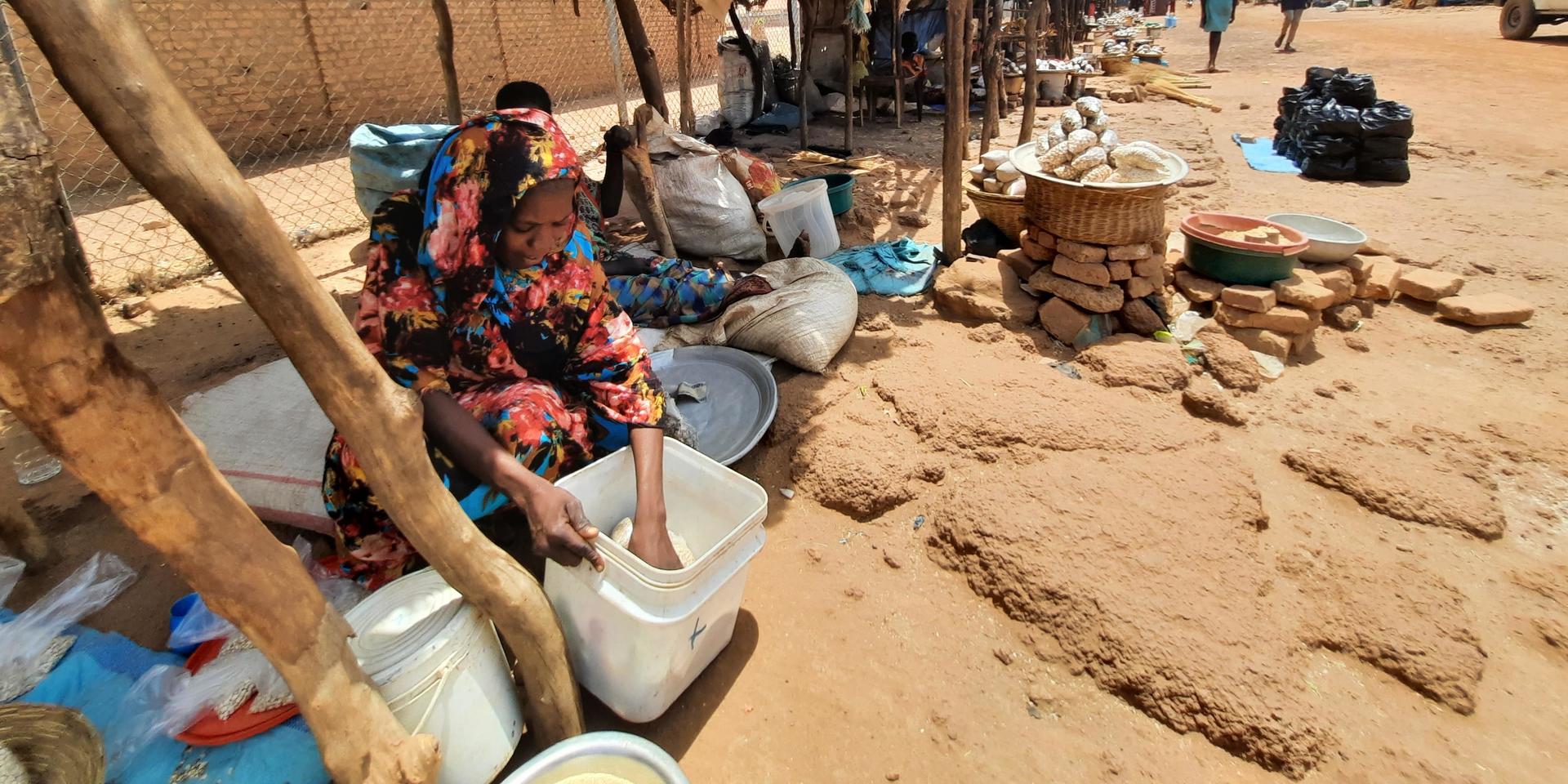
To achieve food security, we must have seed security to provide timely access to good quality seed and at an affordable price. In the Horn of Africa, the challenges presented by harsh climatic conditions and political and military conflict affect food security and seed security. Below we explore these challenges and how the Alliance is working to address them.
Focus and Rationale
Our focus is on seed and food security.
Food security remains a critical development challenge around the world, in recent time accentuated and aggravated by the impact of the Russian invasion of Ukraine, resulting in supply shortages of cereals and oil crops and skyrocketing prices on the world market. Countries heavily dependent on import of cereals and oil crops (from Russia and Ukraine, and elsewhere), among which countries in the Horn of Africa, are experiencing the pain. Prolonged drought in some parts of the world, including the Horn of Africa, is exacerbating the crisis.
For the Horn of Africa, the UNHCR predicts a sixth consecutive failed rainy season for March-May 2023. Food security depends on seed security, the timely access to good quality seed and other planting materials of preferred crops and crop varieties, of quantities needed and at an affordable price. Political and military conflicts and civil unrest not only affect food security, but also seed security as production, storage and distribution of seeds are temporarily or for longer periods disrupted, with fields abandoned or damaged and no or limited harvests, and supply chains interrupted or broken altogether.
The Horn of Africa is largely a seed insecure region. Formal seed systems often fail to reach farmers in such situations requiring development of informal- and intermediary seed systems, in which community seed banks play an important role. In addition, in protracted crisis situations, local communities struggle to adapt their food production systems in the face of recurrent droughts, floods and pest associated with climate change.
Our Work
Community seed banks
Together with national partners, several community banks have been established and supported in Burkina Faso, Ethiopia, Ghana, Kenya, Mali, South Africa, Somaliland, South Sudan, Sudan, Uganda, Zambia and Zimbabwe. Community seed banks are locally managed organizations for the purpose of the conservation and sustainable use of crop (and tree) diversity, mostly but not exclusively of farmer and farmer-improved varieties. Through pilot initiatives in Kenya and Uganda, a national seed portal and a national community seed bank platform were established to exchange seed and related knowledge; create synergy and give farmers a voice in policy debate/development.
Titles unavailable on the Alliance website:
Titles on Community Seed Banks
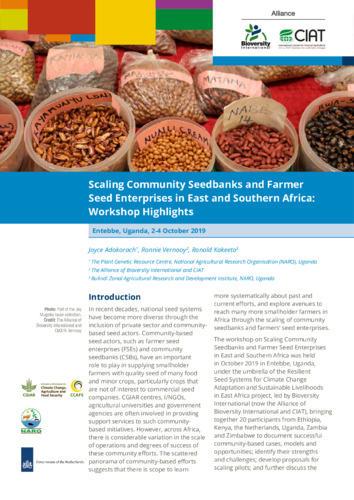
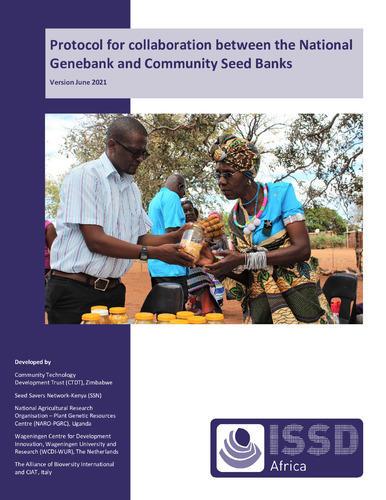
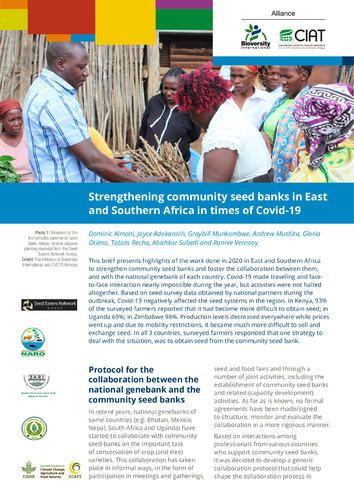
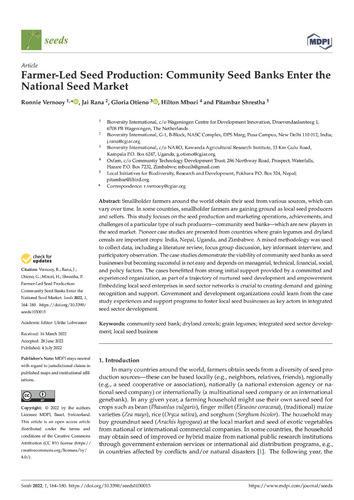
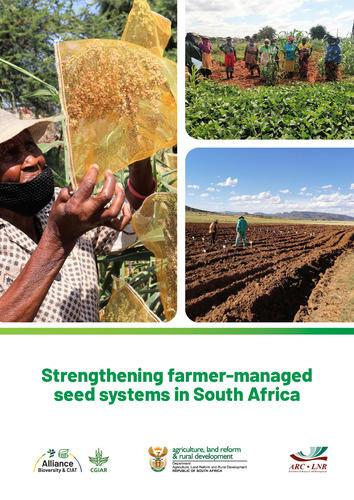

Crop diversification
Adaptation to climate change can be achieved through diverse, but effective pathways of crop diversification leading to various positive results and related improved knowledge and skills, less pest and disease incidence, improved soil fertility, increased food security, more income generation opportunities, and improved nutrition. What is required is a favourable seed policy and legal environment that supports smallholder farmers to govern and manage their own seed systems and create opportunities to enter the seed market.
Titles unavailable on the Alliance website:
- The multiple benefits of crop diversity
- Diversity and participatory crop improvement as conduit for climate change adaptation
Titles on Crop Diversification
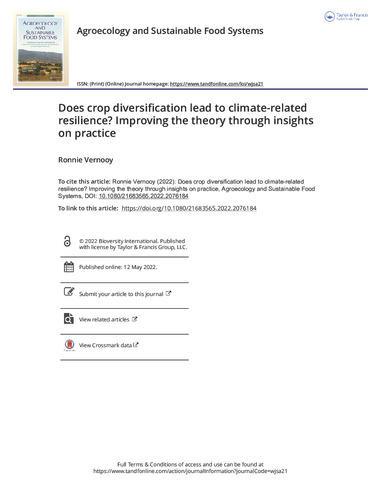
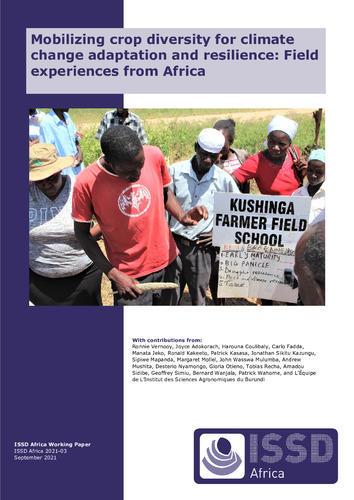
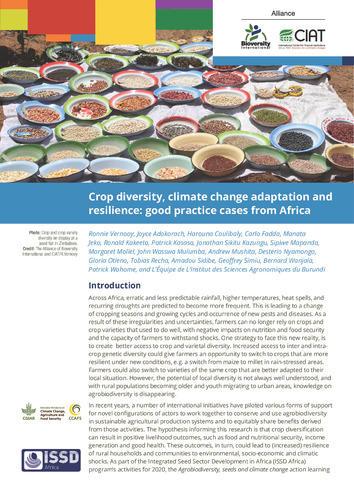
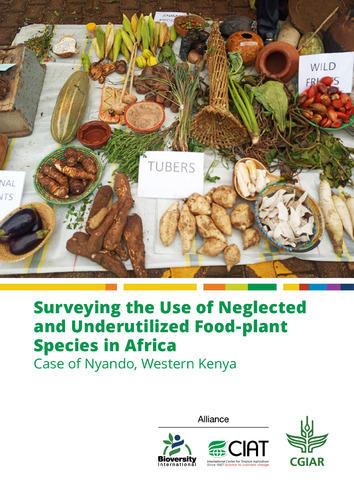
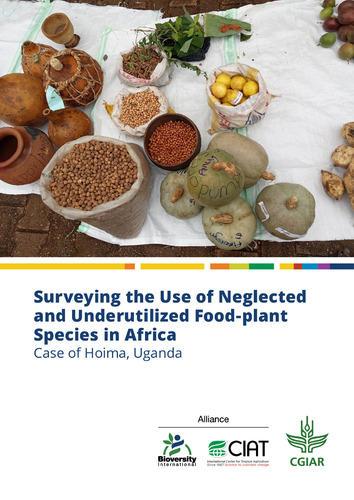
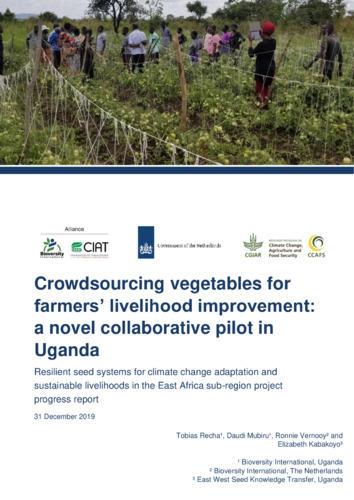
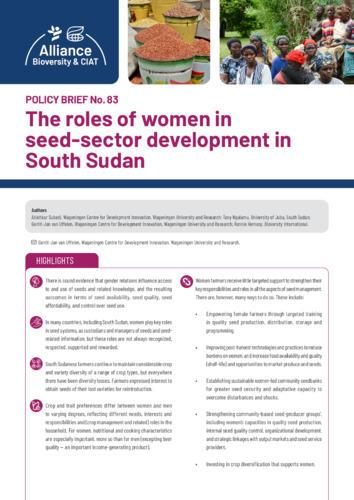
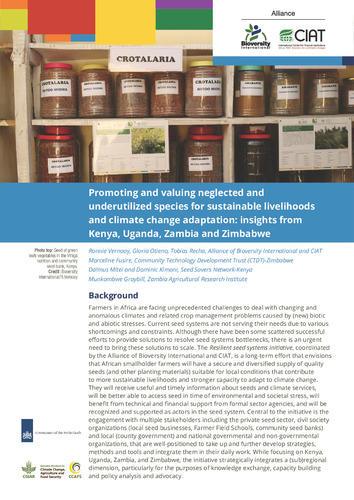
African plant genetic resources and seed policies
Policy analysis contributes to identifying gaps and challenges to support the conservation and sustainable use of crop genetic resources, and to develop alternatives.
- Policy brief: Ten pathways towards a robust, inclusive, sustainable and resilient seed sector in South Sudan
- Call to action: Priorities and partnerships for a robust, inclusive, sustainable and resilient seed sector in South Sudan
Titles on African plant genetic resources and seed policies
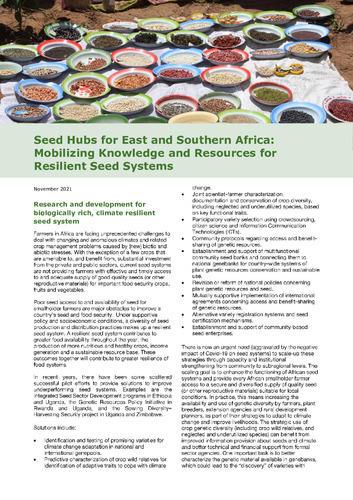
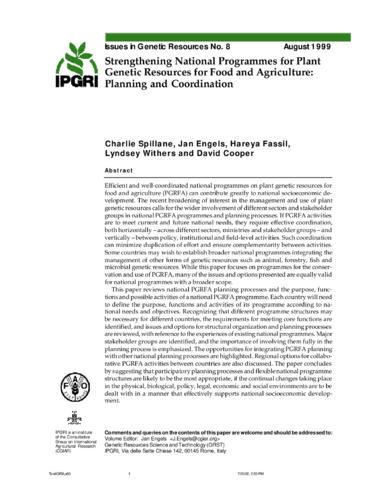
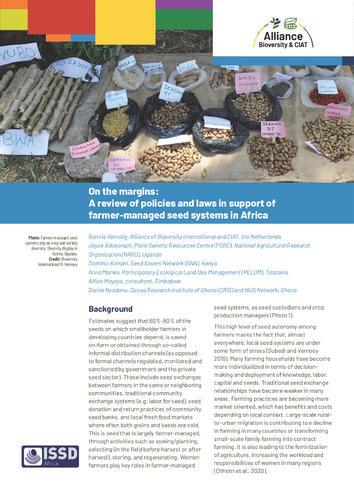
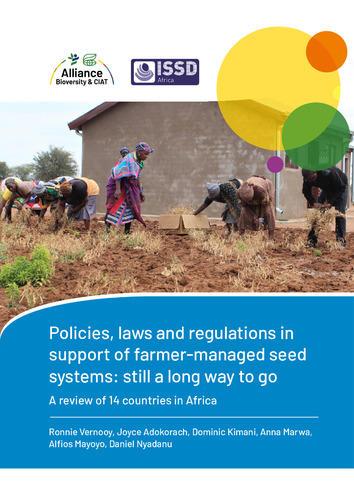
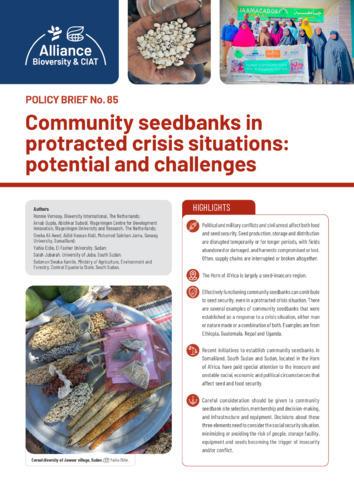
Projects
Together with the Wageningen Centre of Development Innovation of Wageningen University and Research in the Netherlands, we are working on strengthening the capacities of partner organizations in Ethiopia, Somaliland, South Sudan and Sudan to develop integrated seed systems in which farmer and community based activities play a central role, for example, through community seed banks and local seed enterprises.
- Tailor Made Training Plus (TMT+)/Orange Knowledge Programme: Building Resilient Food Systems in Protracted Crisis Situations: Climate Change, Seed Systems and Community Seed Banks; complemented by a study tour to Uganda.
- ICP Horn of Africa Food System Resilience: Making Horticulture Work for Healthier Diets and Income Generation in Protracted Crisis. Building resilient seed systems for healthy diets; and study tour to Kenya.
Results
Part of the results from the undertaking of projects include;
- 53 professionals from government departments, universities and non-government organizations in Ethiopia, Somaliland, South Sudan and Sudan were trained;
- 33 of them participated in the study tours organized to Kenya (17) and Uganda (16); and 15 farmers in Sudan were trained in community seed banking.
- Under the TMT+ project, participants implemented a total of 11 mini-grant projects, four about community seed banking and seven about quality seed production, in Ethiopia (2), Somaliland (1), Sudan (1) and South Sudan (7).
- Under the ICP project, five mini-projects were implemented in Somaliland, on the establishment and or strengthening of a community seed bank (2), crop management (1) and quality seed production (2). Selected crops included cowpea, maize, onion, sorghum and tomato.
- All 16 mini-projects had a strong capacity development component through training of farmers in crop and seed storage and management, and an introduction to the concept and practice of community seed banking. Projects were implemented as pilots, on a small scale and with a small number of farmers. About 1000 farmers participated, half of which were women and about 25% youth.
Deliverables
Technical reports are on file and include deliverables below.
Vernooy, R., Adokorach, J., Subedi, A. 2022. Resilient seed systems study tour to Uganda: highlights and insights. PGRC-NARO, Entebbe, Uganda; WCDI-WUR, Wageningen, the Netherlands; Bioversity International, Rome, Italy. Click to access the brief.
Upon request from the University of Juba, translation and design of the community seed bank handbook for farmers (three booklets, see below) were completed to Arabic, Bari, Dinka, Ndogo and Nuer. Copies were printed for distribution. This handbook will be distributed throughout South Sudan and possibly neighboring countries to be used for the training of farmers. Five additional translations are envisioned, some of which are available on the Alliance website here.
Farmers’ handbook (updated version) Booklets 1 - 3
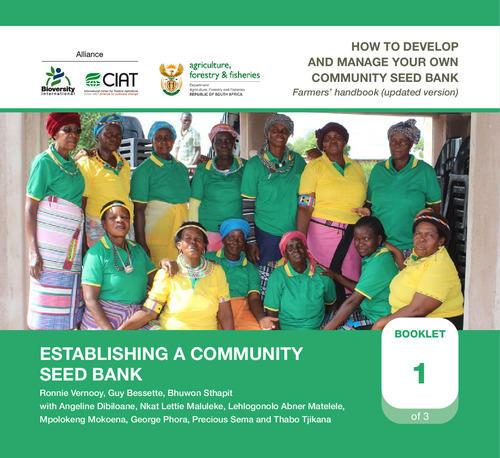
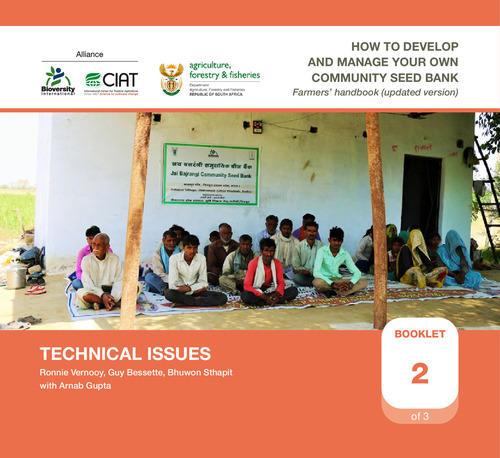
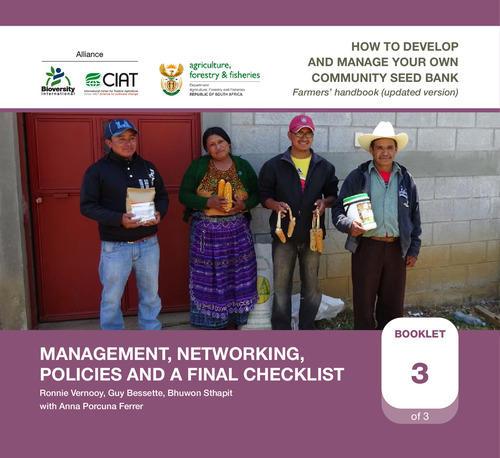
Leadership

Carlo Fadda
Director, Agrobiodiversity
Ronnie Vernooy
Senior Scientist, Genetic Resources and Seed PoliciesTalk To Us
Would you like to reach out to our team of scientists working in the Horn of Africa?
Header image: Seeds for sale at the Bor market, South Sudan. Credit: G.J. van Uffelen.
